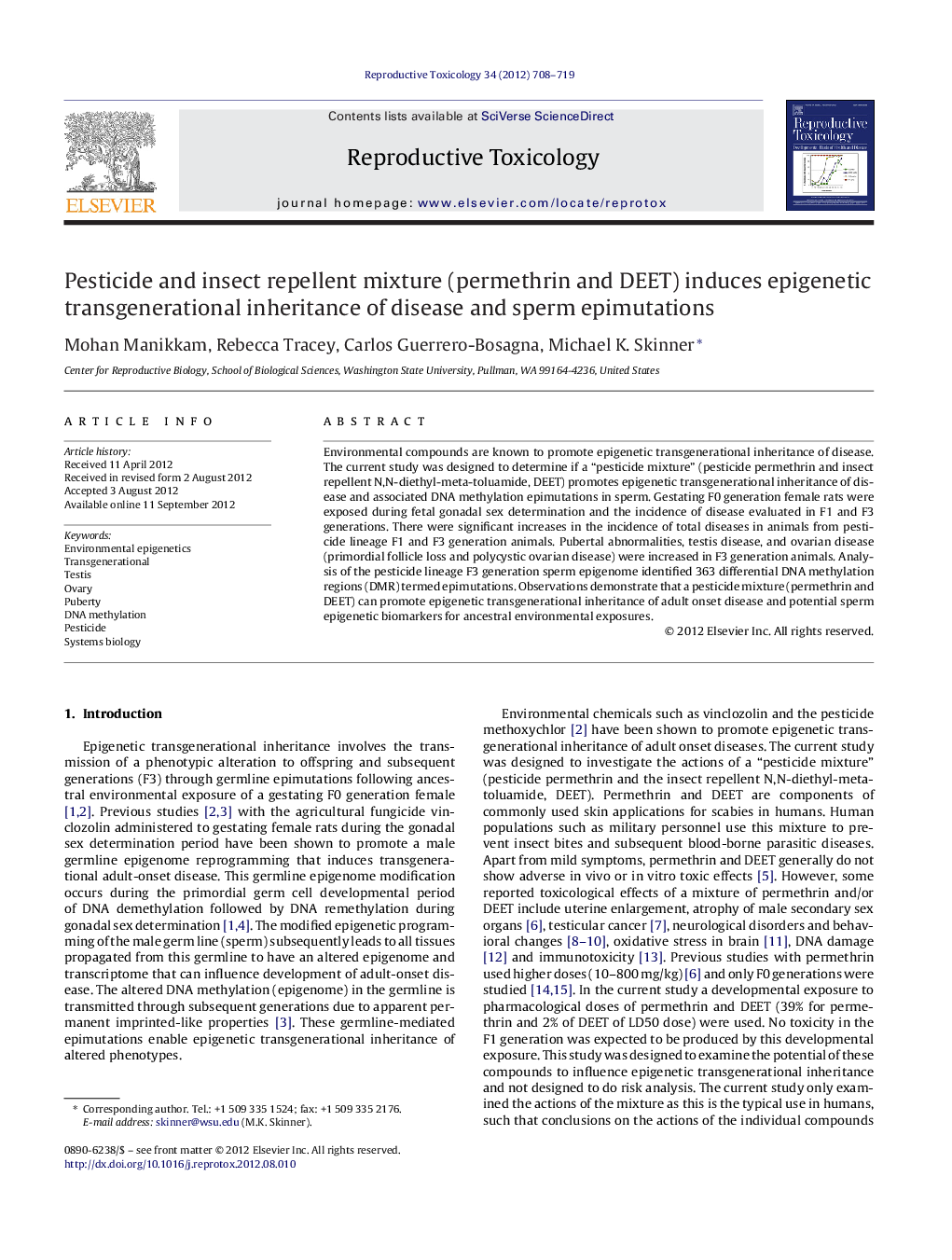| Article ID | Journal | Published Year | Pages | File Type |
|---|---|---|---|---|
| 2593887 | Reproductive Toxicology | 2012 | 12 Pages |
Environmental compounds are known to promote epigenetic transgenerational inheritance of disease. The current study was designed to determine if a “pesticide mixture” (pesticide permethrin and insect repellent N,N-diethyl-meta-toluamide, DEET) promotes epigenetic transgenerational inheritance of disease and associated DNA methylation epimutations in sperm. Gestating F0 generation female rats were exposed during fetal gonadal sex determination and the incidence of disease evaluated in F1 and F3 generations. There were significant increases in the incidence of total diseases in animals from pesticide lineage F1 and F3 generation animals. Pubertal abnormalities, testis disease, and ovarian disease (primordial follicle loss and polycystic ovarian disease) were increased in F3 generation animals. Analysis of the pesticide lineage F3 generation sperm epigenome identified 363 differential DNA methylation regions (DMR) termed epimutations. Observations demonstrate that a pesticide mixture (permethrin and DEET) can promote epigenetic transgenerational inheritance of adult onset disease and potential sperm epigenetic biomarkers for ancestral environmental exposures.
Graphical abstractFigure optionsDownload full-size imageDownload as PowerPoint slideHighlights► First observation that a mixture of permethrin and DEET promotes epigenetic transgenerational inheritance of disease. ► Ancestral environmental exposures promoted transgenerational sperm epimutations. ► Suggestion ancestral exposures may be part of the etiology of testis and ovarian disease. ► Provides additional support for the ability of environmental toxicants to promote epigenetic transgenerational inheritance of disease.
